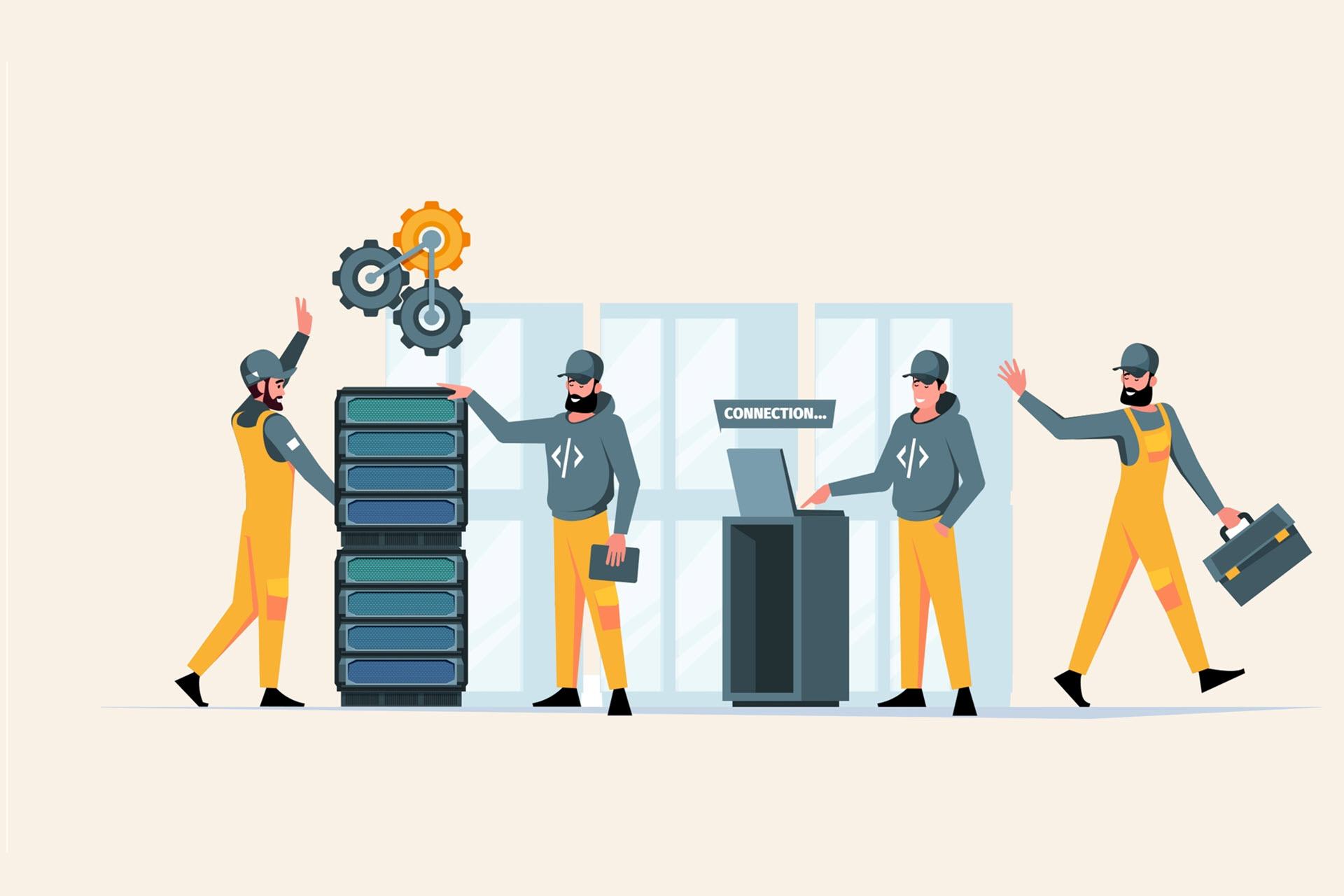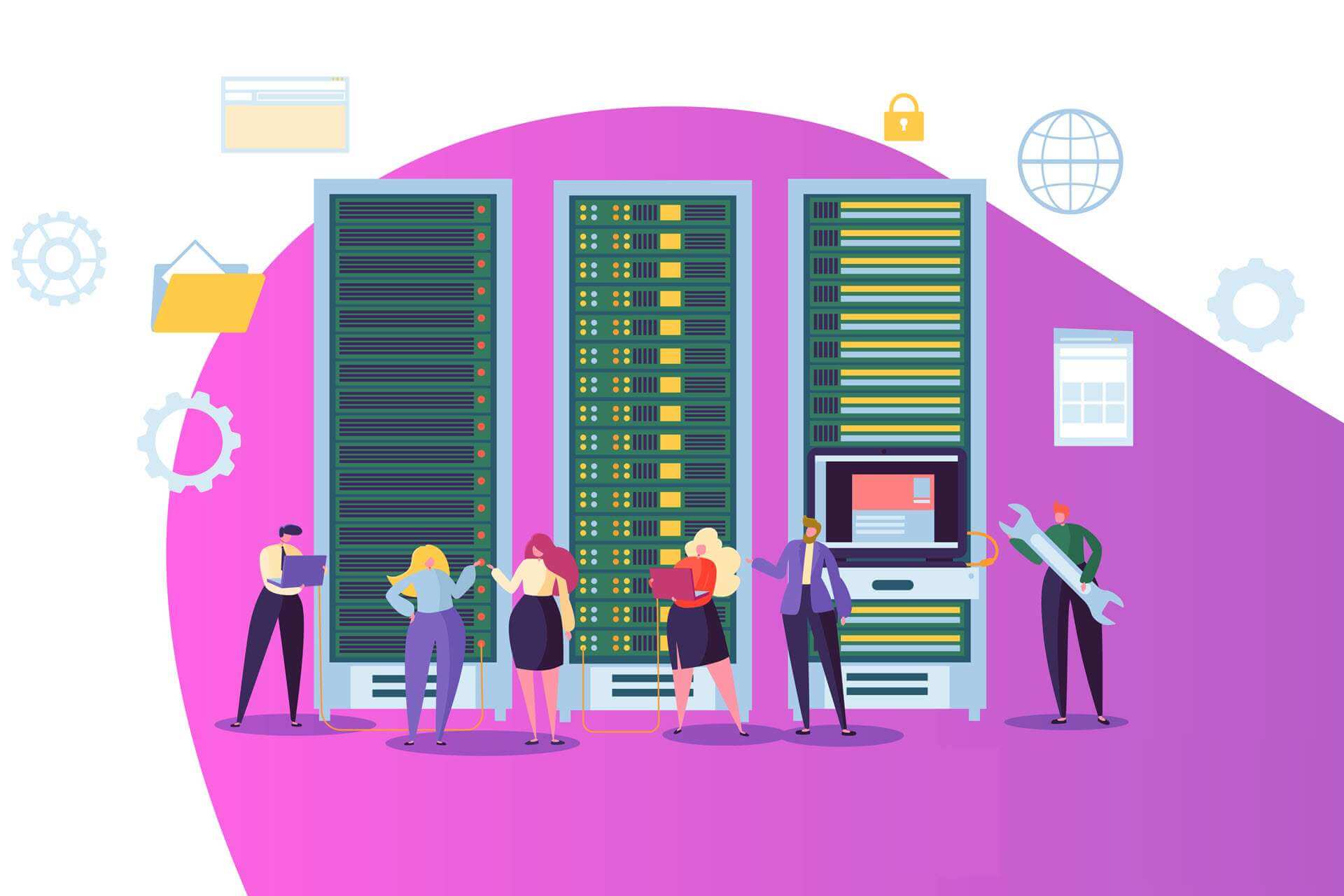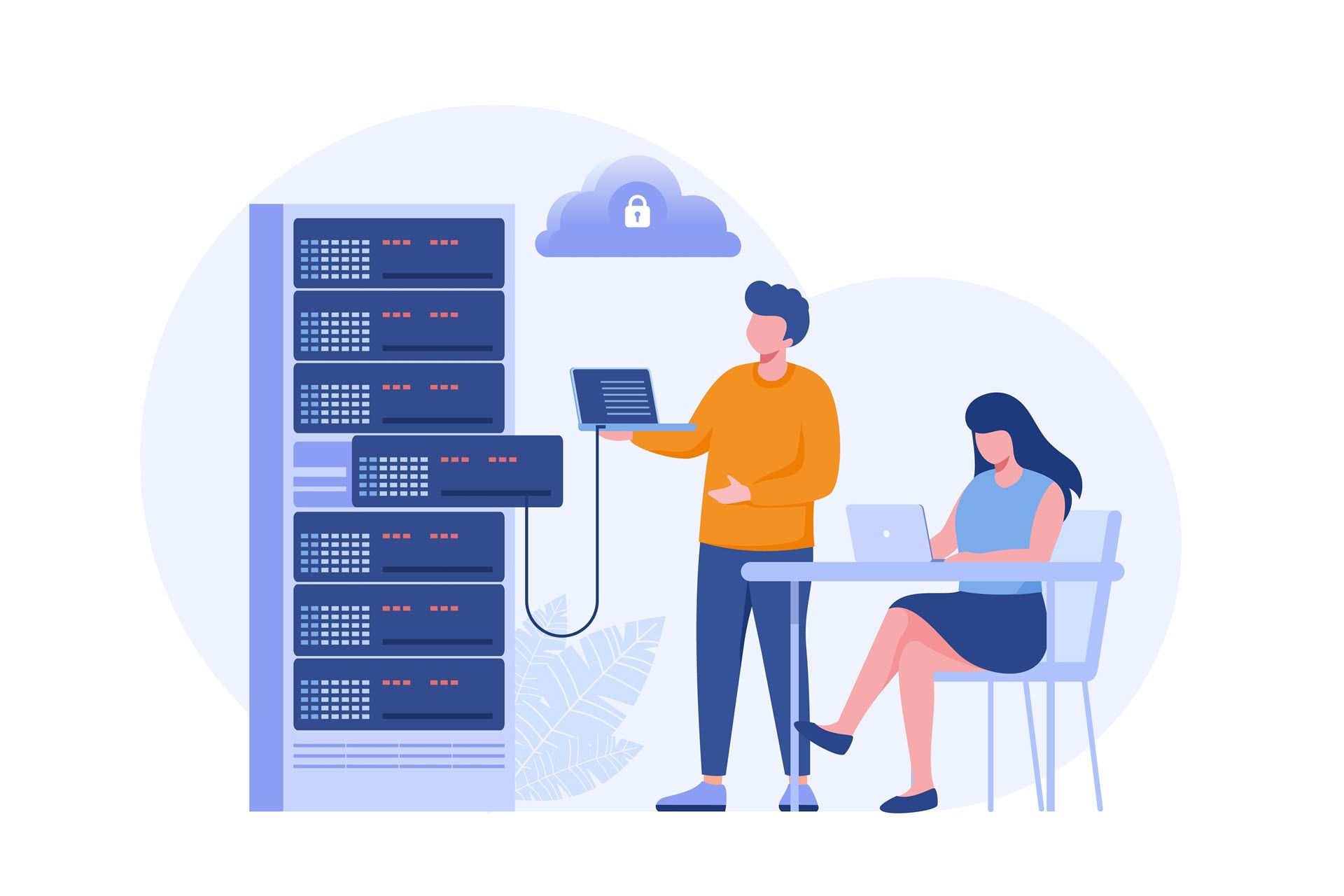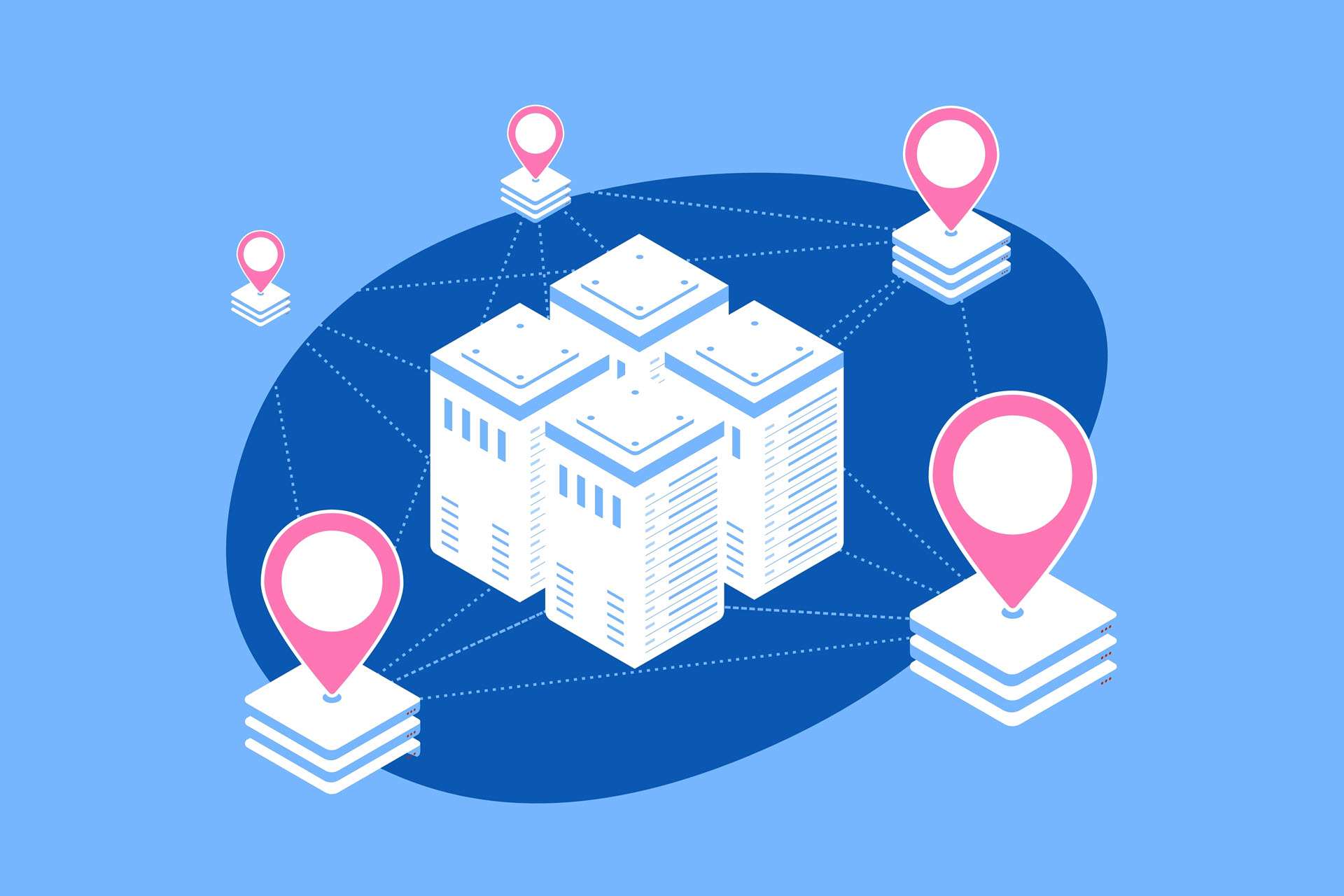Building and maintaining a private data center is a massive financial burden. While many organizations avoid this commitment via cloud computing or tightly packed server rooms, setting up equipment at a colocation data center is another increasingly popular strategy.
Colocation enables companies to house their own IT infrastructure at a third-party data center. That way, clients get access to a state-of-the-art facility and connectivity without the considerable CapEx costs and operational overhead of owning a private data center.
This article is an in-depth guide to colocation data centers that explains why these facilities are an attractive solution for modern infrastructure needs. Read on to learn how colocation data centers work and see whether colo services have a place in your IT strategy.
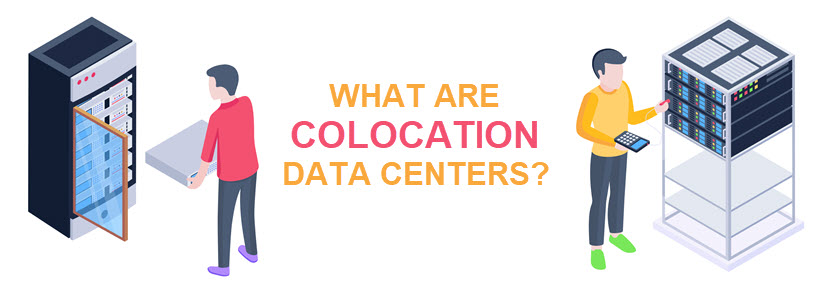
What Is a Colocation Data Center?
A colocation data center is a facility where clients can house privately owned servers, storage, and networking hardware. Instead of building their own data center, clients leverage the provider's ready-made power setup, cooling systems, physical security measures, and high-speed connectivity.
Colo clients bring their own servers, which are installed in racks, cabinets, or cages within the colocation data center. Companies pay for the space they use and the resources they consume (power and bandwidth).
Colocation is a popular strategy for businesses of all sizes. Here are the most common clients of colo services:
- Large companies with extensive IT needs but without the desire to build and manage their own data centers.
- SMEs that require enterprise-grade infrastructure but lack the resources to build and maintain a private facility.
- SaaS providers that need reliable, low-latency infrastructure to support their services.
- Cloud providers that use colo facilities to expand their infrastructure into new regions and markets.
- Banks, trading firms, and fintech companies in need of highly secure infrastructure with low latency.
- Companies that use colocated equipment as a backup infrastructure in their disaster recovery (DR) strategy.
- Healthcare organizations that require HIPAA-compliant, secure, and highly available infrastructure.
The colocation market is expected to grow significantly over the next few years. Recent studies predict that the colo market will grow at a year-over-year rate of 13.3% between now and 2028, depending on the region and market segment.
Here are the primary drivers of this growth:
- High real estate and power expenses that are making private data centers less viable.
- Stricter legal requirements that are pushing organizations toward compliance-ready facilities.
- The growing demand for edge computing, low-latency connections, and more geographically distributed infrastructure.
- The expansion of AI, big data, and IoT that is driving the demand for powerful yet scalable IT infrastructure.
Interested in using AI technologies at your company? If yes, check out our articles on AI use cases and the use of AI in business to see what processes you can automate and streamline with artificial intelligence.
How Does a Colocation Data Center Work?
A colocation data center operates as a shared facility where businesses house their IT equipment. Clients install their hardware in leased space within the facility, in racks, cabinets, or private cages.
Here's a list of the typical hardware client organizations set up at a colocation data center:
- Servers for running applications and other workloads.
- Storage devices (storage arrays, SAN (Storage Area Network), NAS (Network-Attached Storage), etc.).
- Routers and switches for network connectivity.
- Hardware-based firewalls, load balancers, and security devices (e.g., systems for encryption or intrusion detection).
- Ethernet cables, fiber optics, and patch panels for connecting equipment.
- Hardware for server monitoring.
- Backup and disaster recovery hardware (including tape libraries for archival storage).
On the other hand, the colocation provider offers the following to clients:
- Physical space for the equipment (racks, cabinets, cages, private suites, or even entire floors).
- Power equipment (redundant power supplies, UPS systems, backup generators).
- Advanced cooling systems for maintaining optimal temperature and humidity.
- Physical security measures (biometric access, 24/7 surveillance, on-site security personnel, fire suppression systems).
- High-speed, low-latency connectivity with multiple carriers.
- Direct connections between clients, carriers, or cloud providers via cloud on-ramps.
- Support for remote management via out-of-band access (IPMI, iLO, DRAC), KVM over IP, and remote power cycling.
In a typical colocation arrangement, clients manage their own hardware. Self-management is valuable for companies with specific security or compliance needs. By managing their equipment with proper maintenance, businesses can optimize their setup to meet unique needs and lower the likelihood of data breaches.
If clients wish to offload some day-to-day tasks, most colocation providers offer managed services for tasks like deploying new hardware, troubleshooting, rebooting servers, patching, or replacing faulty components. Many providers also offer assistance in meeting standards like GDPR and PCI-DSS.
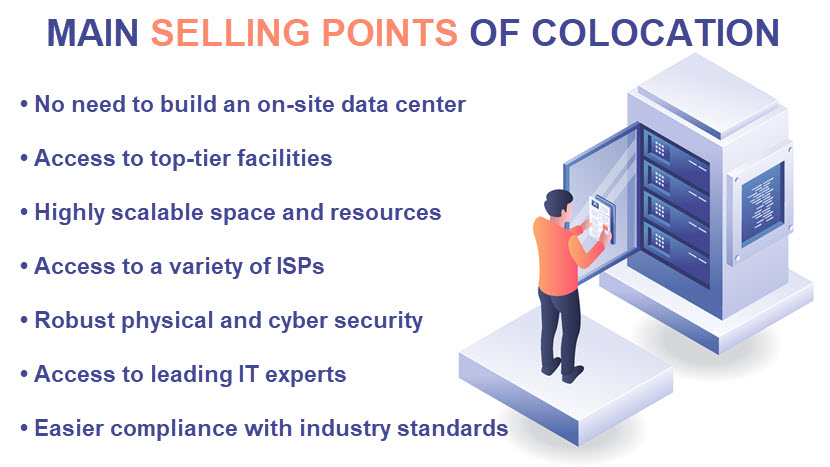
Types of Colocation Facilities
There are two general types of colocation data centers: retail and wholesale facilities. Both types cater to different customer requirements, and understanding their unique features and selling points is key to choosing the right solution for your business.
Retail Colocation Data Centers
Retail colocation data centers are facilities in which client businesses rent individual racks, cabinets, partial racks, or caged-off areas within a shared space. These data centers provide smaller-scale, flexible solutions for multiple companies that are okay with sharing the space with other colo customers.
Here are the key features of a retail colocation data center:
- Shared space. Clients rent space within a shared environment alongside other businesses. In some cases, private cages are an option.
- Rack-level customization. Each client can configure its racks to meet specific hardware and connectivity needs.
- Carrier neutrality. Retail colo facilities offer access to multiple ISPs and network providers to ensure redundancy and competitive pricing.
- Top-tier security. Retail colocation data centers still provide strong security despite being shared environments.
Depending on the arrangement, the retail colo provider can organize the client's hardware by placing everything into side-by-side racks or dispersing hardware throughout the facility and connecting the equipment with cross-connects.
Here are the typical go-to retail customers:
- Web hosting companies.
- Bigger e-commerce retailers.
- Telecom carriers.
- Companies offering cloud-based software solutions.
- IT service firms hosting client workloads.
- Network providers looking to establish a local Point of Presence (PoP).
- Companies managing smart devices and running real-time data processing.
Retail colocation is a common way for organizations to start using cloud services. Once organizations deploy servers in a retail colocation data center, they can connect to various cloud providers and experiment with hybrid and multi-cloud deployments.
Wholesale Colocation Data Centers
Wholesale colocation data centers are facilities where businesses rent cages, suites, or floors to house their IT infrastructure. In some extreme cases, wholesale customers take up the entire facility.
Unlike retail colocation, which caters to smaller-scale needs, wholesale colocation is designed for organizations with significant IT needs. A wholesale colo client does not share its dedicated space with any other customers, so there's a minimal risk of unauthorized personnel coming near the equipment. Only some infrastructure, like power or fiber paths, may still be shared within the facility.
Here are a few examples of typical wholesale colo clients:
- Companies with massive IT needs that require dedicated space and resources.
- Tech giants, cloud providers, and SaaS companies that need to support vast amounts of data and users.
- Banks, stock exchanges, and payment processors that need high-performance computing and secure environments.
- Organizations that must comply with HIPAA, PCI DSS, FedRAMP, or other strict regulations that necessitate the use of private, highly secure spaces.
- Streaming services and digital media firms that handle high-bandwidth video and audio distribution.
- Companies that conduct large-scale research, drug development, and genome sequencing.
- Firms managing smart grids, IoT infrastructure, and real-time analytics.
- Businesses leveraging AI for autonomous systems or simulations.
Compared to retail colocation, wholesale colo clients have more control over cooling, networking, and physical security within their dedicated space. The wholesale approach is more customizable as the provider is more likely to accommodate unique requests.
Wholesale clients typically sign long-term contracts (3-5 years on average), which leads to a more favorable per-MW pricing rather than per-kWh costs compared to retail colocation. Wholesale colo providers charge a fixed monthly rent for the hosting space and a varying monthly bill for consumed power.
Check out our wholesale vs. retail colocation article if you'd like a more in-depth look at what sets these two service types apart.
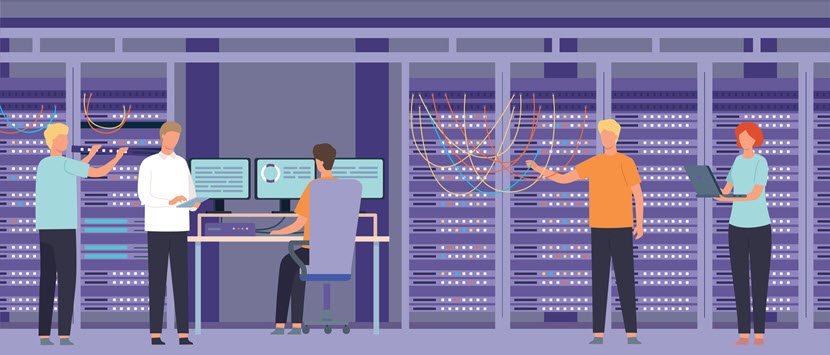
Benefits of Colocation Data Centers
Here are the main benefits of signing up with a colocation data center:
- Reduced infrastructure costs. Colocation enables clients to avoid the high CapEx costs of a private data center. Instead, businesses pay operational (OpEx) costs to the colo provider, which are considerably lower than the costs of private facilities due to economies of scale.
- High availability and reliability. Colocation facilities offer redundant power/cooling, backup generators, and multiple network carriers to ensure 99.99%+ uptime (dependent on the facility's tier level). These features cost a fortune to deploy on an in-house level.
- Top connectivity. One of the biggest advantages of colocation is access to carrier-neutral connectivity, direct cloud on-ramps, and internet exchange points (IXPs).
- Enhanced security. Colo providers invest heavily in data center security with biometric access controls, 24/7 surveillance, and on-site security staff. Top-tier cyber security measures are industry standards and available as additional managed security services.
- Easier compliance. One of the main selling points of colocation is that clients can sign up with a compliance-ready facility. Compliance with industry standards like SOC, ISO 27001, HIPAA, and PCI DSS make colocation suitable for clients in heavily regulated industries.
- Scalability. Colo providers make it easy to expand IT infrastructure by adding more racks or upgrading to larger cages as business needs grow. Clients never have to worry about running out of space or orchestrating data center expansions.
- Improved network performance. Colocation providers offer access to multiple ISPs to ensure lower latency, faster speeds, and high network redundancy. Many providers also offer direct connections to cloud services for better hybrid IT performance.
- Expert support. Most colo facilities have on-site technicians who can provide remote hands services for troubleshooting, hardware swaps, and server management. Semi or fully managed colocation enables clients to reduce the burden on their in-house personnel.
Check out our CapEx vs. OpEx article to see why the shift from capital to operational expenses is so advantageous from a business standpoint.
Challenges of Colocation Data Centers
While colocation is highly beneficial, these services come with a few challenges you must know about. Here are the most notable downsides of deploying hardware at a colocation data center:
- High initial and ongoing costs. While colocation reduces CapEx costs, businesses must purchase or lease the hardware they plan to set up at a colo facility. Additionally, monthly fees for power and bandwidth pile up over time and can be unpredictable if your demand fluctuates.
- Hardware maintenance. Colo clients manage their own hardware, which means they must handle repairs, upgrades, and replacements. Clients must have a skilled IT team located near the colocation data center to handle maintenance efficiently. Otherwise, users must pay a premium for managed services.
- Limited physical access. Colo clients must follow the provider's access and security policies. Such an arrangement may restrict on-site visits for maintenance or emergency troubleshooting.
- Dependency on the provider. Colo clients rely entirely on the provider for power/network uptime and physical security. If the provider suffers power failures, network disruptions, or security breaches, client operations will experience issues.
- Vendor lock-in. Like all arrangements that involve third-party providers, colocation services are prone to vendor lock-in issues. Long-term contracts and migration complexities often prevent clients from moving to another data center cost-effectively.
- Geographic constraints. An ideal location for a colo facility must align with the client's disaster recovery plan and regulatory compliance. Finding a facility that meets all the necessary requirements is a common challenge.
- Latency considerations. If a colo facility is far from the end users or critical workloads, latency can become an issue, especially for real-time applications like financial trading or gaming.
Unsure about what's a realistic price for colo services? Check out our guide to colocation pricing and see what you should expect to pay for colocation.
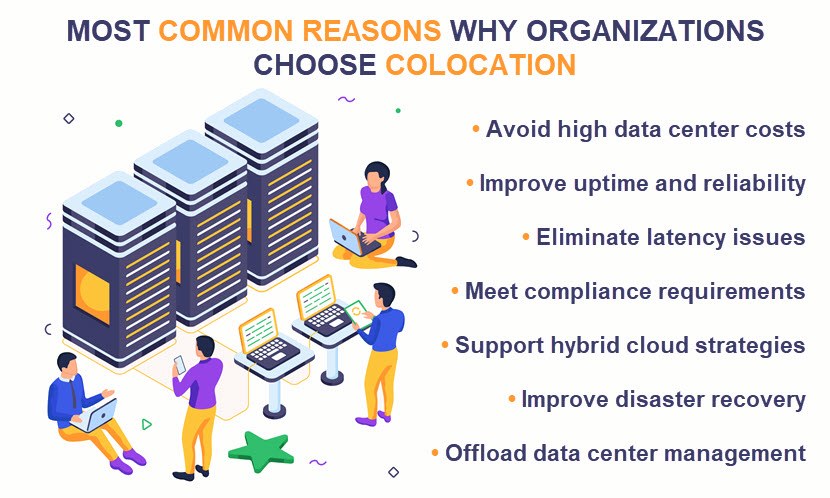
How to Choose a Colocation Data Center
Here are the key factors to consider when selecting a colocation data center:
- Location. Choose a facility sufficiently close to your customer base to avoid latency issues. If your team manages hardware on-site, the data center should also be relatively near your office for periodic hardware maintenance.
- Carrier options. Choose a carrier-neutral data center that offers access to various ISPs.
- Relevant compliance. Ensure the facility meets compliance standards (SOC 2, ISO 27001, HIPAA, PCI DSS) if your business is within the scope of some regulation.
- Pricing. The cost of colo services must align with your allocated budget. Also, you should assess contract terms, pricing transparency, and the ability to scale services without long-term lock-in.
- Power and cooling infrastructure. Inquire about the facility's energy efficiency and cooling redundancy, especially if you plan to run high-density workloads.
- Expansion potential. Assess whether the provider offers modular scaling or additional rack space that will accommodate your future growth.
- Support and SLAs. Ensure the SLA clearly defines uptime guarantees, maintenance policies, and customer support availability.
- Remote hands services. If your IT team is far from the data center, the availability of remote hands services for troubleshooting and maintenance is a crucial factor.
If you are planning to colocate equipment in Arizona, you can set up your hardware at our flagship data center in Phoenix. Here are the main selling points of our Phoenix-based facility:
- Over 100,000 sq. ft. of floor space (530,000 sq. ft. expansion underway).
- Historically low risk of natural disasters.
- A global network backbone of 9+ Tbps.
- Two meet-me-rooms.
- A total of 45 carriers available.
- Direct access to major on-ramps, including AWS Direct Connect and Google Cloud Interconnect.
- SOC 1, SOC 2, and SOC 3-compliant.
- HIPAA, GDPR, SOX, and GLBA-ready.
- SLA-backed uptime for temperature, humidity, networks, and power.
Want a firsthand look at our colo facility? Schedule a virtual tour of our Phoenix data center via our colocation page and see why we're the go-to interconnectivity hub of the U.S. Southwest.
Use Colo to Avoid the High CapEx Costs of a Private Data Center
While it may not be an ideal fit for every organization, colocation is one of the most effective ways to avoid the expenses and complexities of privately owned data centers. Use what you learned in this article to assess whether signing up with a colocation data center would benefit your IT strategy and bottom line.
